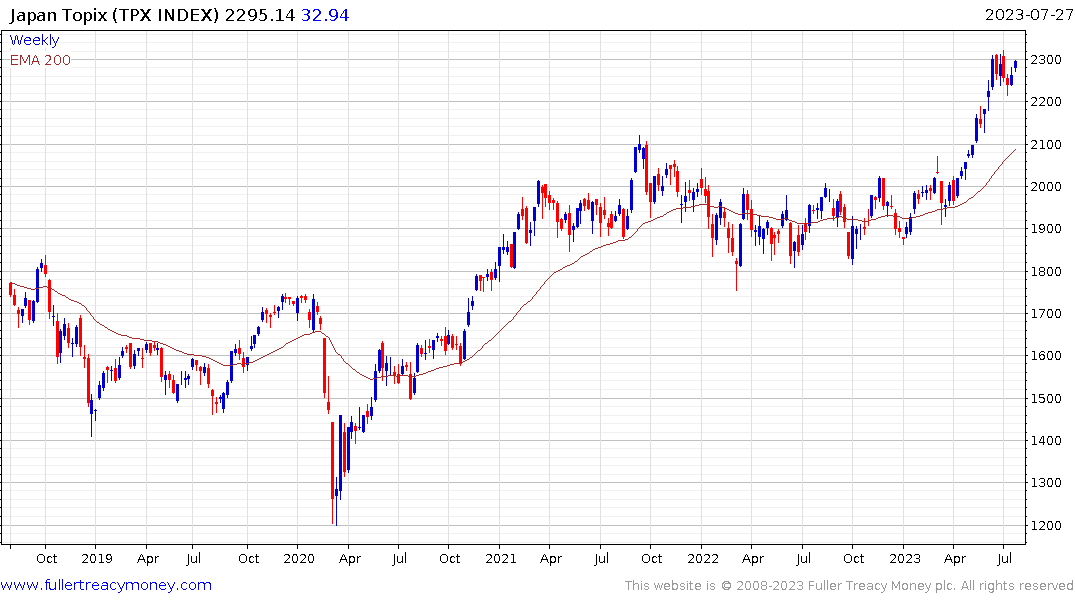Japanese Population Falls in All 47 Prefectures for First Time
This article from Bloomberg may be of interest to subscribers. Here is a section:
“The situation is dire and proves government policies to halt the declining birthrate have fallen short,” said Hideo Kumano, an economist at Dai-Ichi Life Research Institute. “The data shows there’s a limit on what can be achieved by easing the burden of raising kids with subsidies. What’s important is to secure employment opportunities in the regions, too.”
Last year, the number of children born nationwide fell under 800,000 for the first time since records began in 1899. The population of Japanese nationals has been falling continuously for 14 years, and for the first time this included the southern prefecture of Okinawa, historically known for a high birthrate.
Kishida’s promised to spend about ¥3.5 trillion ($24.8 billion) on measures to increase the birthrate, without fully explaining how this will be funded. Among the policies is an expansion of cash handouts to families with children, regardless of parental income. Experts have warned the policy package fails to tackle the root causes of the declining birthrate, such as a lack of stable job prospects.
When a country loses 800,000 people in a year it is time to think seriously about the factors which contribute to people wanting to have children. The low birth rate is the result of conscious decisions made by millions of people every year. To have children, one has to have an optimistic view on the future. Decades of economising and taking cuts to living standards are not conducive to the view tomorrow will be better than today.
There has been a lot of discussion on the success Hungary has had in boosting its birth rate. That policy has depended on rewarding women in a monetary fashion for having more children. The USA has historically had a higher birth rate than other large, developed economies for both cultural and standard of living reasons. It is simply easier to raise children when you are optimistic about the future. That also explains why Ireland’s birth rate has been high by developed country standards.
For Japan, the refusal to have children is as much about a dour attitude toward the future as it is rebellion against the position of women in society. For the birth rate to recover the composition of the economy will have to change beyond recognition.

That also helps to highlight how difficult it is to overcome the deflationary trend in the economy. The Bank of Japan is currently discussing whether the yield curve control target should be altered. Even a breadth of indecisiveness was enough to fuel a rebound in the Yen today.

The Topix Index continues to trend higher in a consistent manner.


